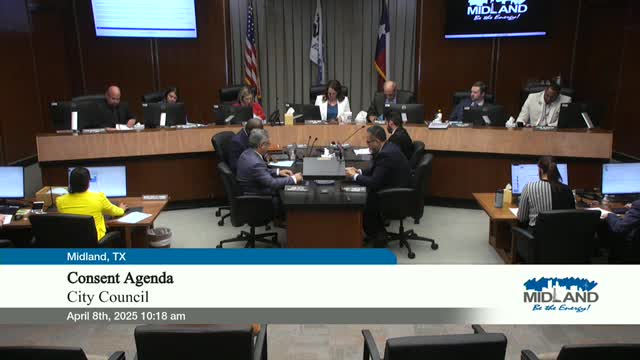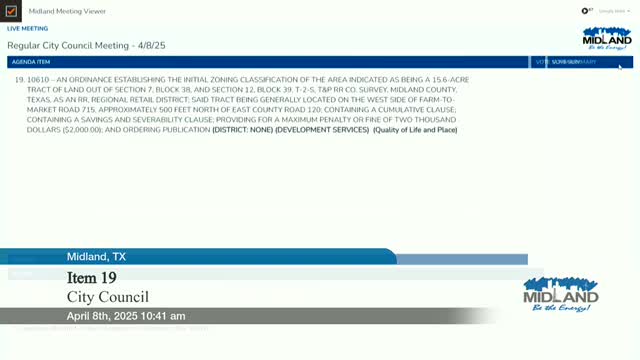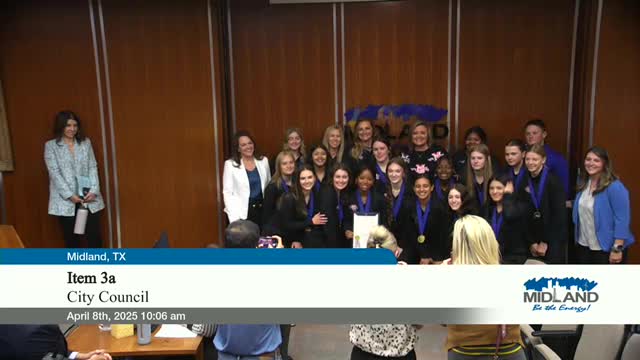Article not found
This article is no longer available. But don't worry—we've gathered other articles that discuss the same topic.

Votes at a glance: Council approves annexation, multiple zoning actions, contracts and ordinances

Council approves vacation travel-trailer park in south Midland amid neighbor objections over security and utilities

Council approves $210,847 change orders to boost Paul Davis wellfield output

